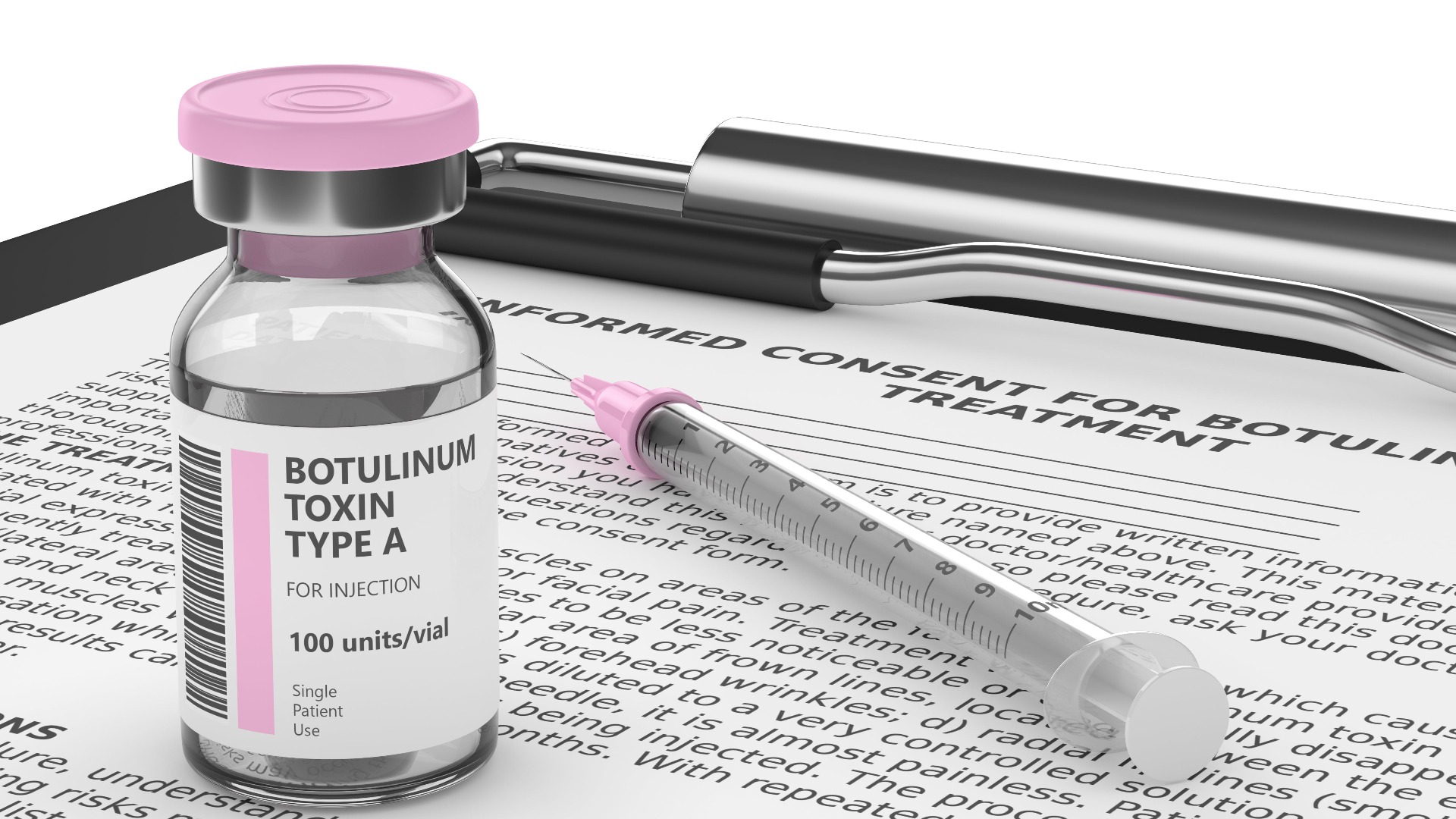Effects on Muscles
Botulinum toxin is most famously known for its impact on muscles in both medical and cosmetic fields. Overactive muscles can be effectively relaxed by botulinum toxin injections administered by doctors. Its primary mechanism of action is the inhibition of the release of acetylcholine from neurons, effectively blocking nerve transmission signals and resulting in temporary muscle paralysis.
In the cosmetic field, the use of botulinum toxin reduces facial wrinkles. Especially, injections of botulinum toxin into the muscles of active expression around the forehead, eyes, and lips can effectively relax these muscles, thus making the skin smoother. According to clinical research, after injecting botulinum toxin, the wrinkle reduction rate may reach 60%-70%, and the effective duration may last for 3 to 6 months.
Besides cosmetic uses, there are numerous applications of botulinum toxin in treating many muscle spasms and neuromuscular diseases. Indeed, it has been demonstrated that 70%-80% of treated patients can achieve remarkable improvement in symptoms caused by muscle spasm. In fact, conditions such as facial spasms and neck muscle spasms can be effectively relieved by injecting botulinum toxin, helping patients return to normal daily life and work.
Effects on Skin
Some of the most important effects of botulinum toxin extend beyond muscles and profoundly improve the quality of the skin. Injecting botulinum toxin into the skin may elicit the production of collagen, improving skin texture and firmness. Many patients undergoing the treatment repeatedly report that after injection, their skin looks fuller, with fine lines and wrinkles greatly reduced.
Of the patients treated with botulinum toxin, about 65% reported marked improvement in skin condition. This is mostly manifested as improved smoothness and tightness of the skin, making it look younger. It can also be used to improve oily skin by reducing sebaceous gland activity, hence controlling oil secretion and thereby reducing the incidence of acne and other skin problems.
Some cutaneous disorders, like oiliness and seborrheic dermatitis, are treated using botulinum toxin. Injecting botulinum toxin reduces the activity of sebaceous glands, thereby diminishing skin oiliness and leading to improvement in skin quality.
Effects on the Nervous System
Being a strong neurotoxin, botulinum toxin has a significant effect on the nervous system. It prevents the conduction of nerve impulses effectively by inhibiting the release of the neurotransmitter acetylcholine. This mode of action has proved beneficial in treating a wide range of neurological disorders.
Botulinum toxin has been used as a treatment approach for facial spasms, neck muscle spasms, and other types of spasms. Symptom relief rates as high as 85% have been recorded in clinical data in patients treated with botulinum toxin. Studies report that patients experience significant improvements in quality of life.
Botulinum toxin is also being studied currently and exhibits some potential in migraine and tension-type headache therapy. According to a study conducted among chronic migraine patients, frequent injections of botulinum toxin may significantly reduce headache frequency and intensity. Approximately 50% of the treated patients experienced a reduction in headache attacks within one month of treatment.
Effects on Sweat Glands
In recent times, there has been increasing interest in the use of botulinum toxin in the treatment of hyperhidrosis. This is a distressing condition where one or more areas of the body develop overactive sweat glands and can affect about 2-3% of the population, sometimes severely affecting their quality of life.
Injecting botulinum toxin to inhibit sweat gland activity can be quite effective in reducing the amount of sweating. Some clinical research reported that after botulinum toxin injections, the amount of a patient’s sweat secretion decreased by about 80%. The effectiveness of these treatments usually lasts up to six months or a year on average, showing it to be a very effective solution for the embarrassment caused by excessive sweating.
Physicians perform precise injections into the specific areas of excessive sweating, ensuring effectiveness and safety. It has been observed through research that many patients realize significant improvement in their social lives and self-confidence, which greatly enhance their quality of life.
Effects on the Eyes
Another good application of botulinum toxin is in ophthalmology. This includes indications such as eyelid spasm and strabismus, among others. Blepharospasm is an involuntary contraction of the eyelids which causes great distress to the patient. With the injection of botulinum toxin, the muscles of the eyelids can be relaxed very effectively, and the symptoms ameliorated.
Well over 70% of patients who suffer from eyelid spasm show improvement in their condition after treatment. Botulinum toxin assists people suffering from strabismus by helping their eyes return to normal movement through improved coordination. Research indicates that roughly 60% of strabismus patients who receive botulinum toxin treatment attain very significant improvements post-treatment.
Botulinum toxin can also aid in treating certain eye muscle weakness issues, promoting normal eye muscle function and alleviating visual fatigue and discomfort for patients.
Relief from Headaches
Chronic migraines affect many people, and one of the increasingly widespread treatments involves the use of botulinum toxin. According to numerous studies, regular injections of botulinum toxin have a significant positive effect on reducing the frequency and severity of migraine attacks. About 50% of the patients in one study experienced a reduction of more than 30% in headache attack frequency after the treatment.





